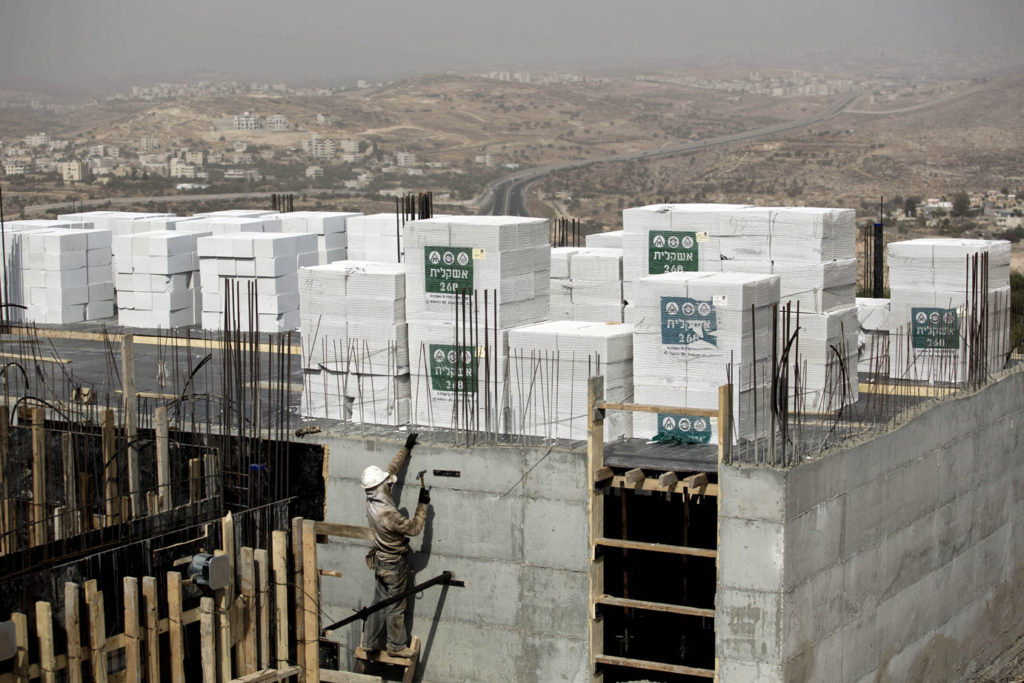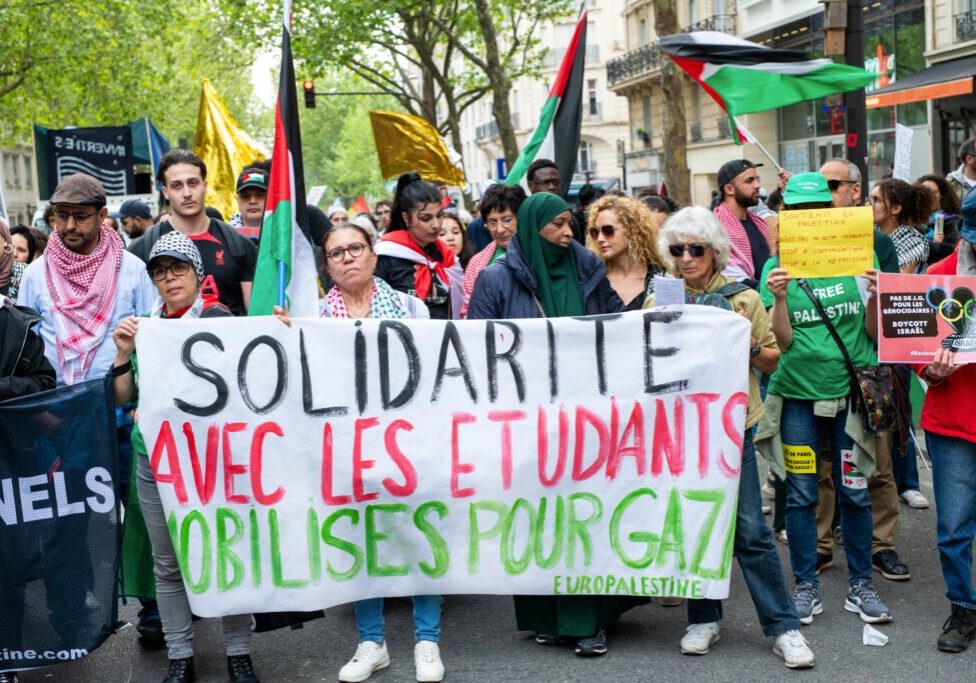Australia/Israel Review
Behind the News – March 2016
Mar 9, 2016 |

Terror Report
On Feb. 18, Israeli Tuvia Weissman, 21, was stabbed and killed by two 14-year-old Palestinians as he shopped at the Ram Levi supermarket – frequented and staffed by both Jews and Palestinians – between Jerusalem and Ramallah.
On Feb 3, three Palestinian men attacked two Israeli border policewomen near the Nablus Gate in the Old City of Jerusalem with knives and gunfire after they were asked for ID. Border Police officer Hadar Cohen, 19, was killed. The three terrorists, killed in a firefight with Israeli security forces, were armed with improvised sub-machine guns and IEDs, and reportedly were planning to attack a group of Jewish civilians.
Many other Israelis were wounded by Palestinians using guns, knives, Molotov cocktails, rocks and vehicles to carry out attacks on near daily basis over the past month.
Meanwhile, two Israeli minors convicted of the brutal July 2014 murder of Palestinian 16-year-old Mohammed Abu Khdeir were sentenced to life imprisonment and 21 years in jail respectively. The two were also 16 at the time of the murder. Adult defendant Caleb Ben David, also convicted, is now pleading insanity, and his sentencing has been delayed to allow for psychological assessments.
Ha’aretz confirms 18-month freeze on settlement approvals
The Israeli daily confirmed that, as some Israeli media have long speculated, Israel has been implementing a long-term unofficial freeze on approvals for new construction in West Bank settlements and east Jerusalem. While the Israeli Government has never acknowledged the freeze publicly, Ha’aretz reporter Chaim Levinson revealed that for approximately 18 months no new construction permits were approved in these territories. This was confirmed by figures from the Israeli Central Bureau of Statistics, which show a considerable slowing of West Bank construction starts in 2015. The freeze excluded pre-planned and already approved housing starts, and a few cases where the government was compelled to defend new constructions and development plans due to legal action in the High Court of Justice.
Hamas tunnels collapse
The collapse of a Hamas tunnel close to the Gaza Strip’s eastern border with Israel in late January killed seven Hamas operatives. On Feb 3, another tunnel collapsed near Zeitoun, while Hamas announced two of its members had died in the collapse of yet another tunnel. On Feb. 9, another Hamas member was killed in a tunnel collapse near Khan Younis.
On Jan 29, Hamas leader in Gaza Ismail Haniyeh stated, “In east Gaza there are heroes digging tunnels under the ground and in the west there are those testing rockets. The al-Aqsa Martyrs’ Brigades are digging tunnels to defend Gaza and turn it into a launch pad for all of Palestine.” He claimed, “Fighters are digging twice as much as the number of tunnels dug in Vietnam.”
Confirmation ISIS used chemical weapons
Last year, ISIS fighters used mustard gas against Kurdish forces in Iraq, a diplomat said, citing tests by the Organisation for the Prohibition of Chemical Weapons (OPCW), according to Reuters. A source at OPCW confirmed that tests found around 35 Kurdish troops were indeed sickened by sulphur mustard gas last August after fighting against Islamic State militants southwest of Erbil. The OPCW had already concluded in October that mustard gas was used last year in neighbouring Syria.
Meanwhile, concerns have arisen that ISIS militants in Libya are seeking the capability to launch seaborne operations in the Mediterranean, the Telegraph reported on Jan. 28.
Moreover, Pentagon officials have confirmed that ISIS fighters have captured four SA-6 mobile anti-aircraft missiles along with two launchers in Syria. It is unclear if ISIS has the additional technology necessary to launch the missiles.
Hezbollah threatens to attack Israeli chemical plants
Hezbollah leader Hassan Nasrallah claimed that his Lebanese terror group could defeat Israel in a future conflict by targeting ammonia storage tanks at a chemical plant in Haifa, which could result in massive fatalities. In a speech broadcast on Lebanese Naharnet news site on Feb. 16, Nasrallah said, “This would be exactly as a nuclear bomb, and we can say that Lebanon today has a nuclear bomb, seeing as any rocket that might hit these tanks is capable of creating a nuclear bomb effect.”
Hezbollah continues to boost its capabilities, and is now using radars to track Israeli fighter jets on reconnaissance flights over Lebanon, Israeli media reported. The radar technology was reportedly acquired following Russia’s entry into the Syrian civil war.
Meanwhile, on Feb. 1 the US Drug Enforcement Administration (DEA) announced an international operation to net a Hezbollah network using millions in drug sales to fund terrorist activity in Syria and Lebanon. Seven countries, including France, Germany, Italy and Belgium, were involved in the operation, which apprehended four individuals.
Israel creates new drones and cyber defence units
On Feb. 1, Israel’s Elbit Systems revealed a new “autonomous unmanned surface vehicle” that can wage anti-submarine missions by firing small torpedoes, as well as detect and blow up submerged mines by sending robots and interceptors deep underwater.
In other developments, Israel Aerospace Industries (IAI) unveiled at an exhibition new “Roamer” class missiles that look like drones but are in fact missiles that can hover until they lock on their targets and destroy them.
Meanwhile, IDF Chief of Staff Gadi Eisenkot announced the establishment of a cyber division in the IDF whose responsibilities will be to defend Israel against cyberattacks on critical infrastructure including water, electricity, banking and cellular networks.
EU retreat on product labeling
Israel has said that relations with the European Union are “close and friendly” again following the resolution of tensions that arose last year following the EU decision to require special labeling on all Israeli exports manufactured beyond the 1967 Green Line. To protest the move, in November Israel suspended contacts with EU officials on the peace process.
Israeli Foreign Ministry spokesman Emmanuel Nahshon said the sides had “overcome the crisis” after Israel’s PM Binyamin Netanyahu and EU Foreign Affairs Chief Federica Mogherini spoke by phone on Feb. 12.
While the EU resolution was to be mandatory on all 28 member states, under a new agreement, the EU said it will leave product-labeling decisions up to each individual member country. The EU also promised that it would oppose any boycott or isolation campaigns against Israel. In response, Nahshon said that Israel would no longer exclude EU bodies from peace talks with the Palestinians.
New Nazi War Crimes trial
Feb. 11 saw the opening in Germany of the trial of 94-year-old former Auschwitz death camp guard, Reinhold Hanning, charged with helping to murder at least 170,000 people, in what may be one of the final war crimes cases stemming from World War II. According to the prosecutors, Hanning voluntarily joined the Death’s Head Unit, the Nazi organisation overseeing concentration camps, at the age of 18. Hanning was transferred to Auschwitz in January 1942, where he reportedly served until at least June 1944. Hanning has admitted to having been a guard, but denied any participation in mass murder. Three other former death camp workers also in their 90s are scheduled to go on trial in Germany over the next few months.
This article is featured in this month’s Australia/Israel Review, which can be downloaded as a free App: see here for more details.
Tags: Europe






